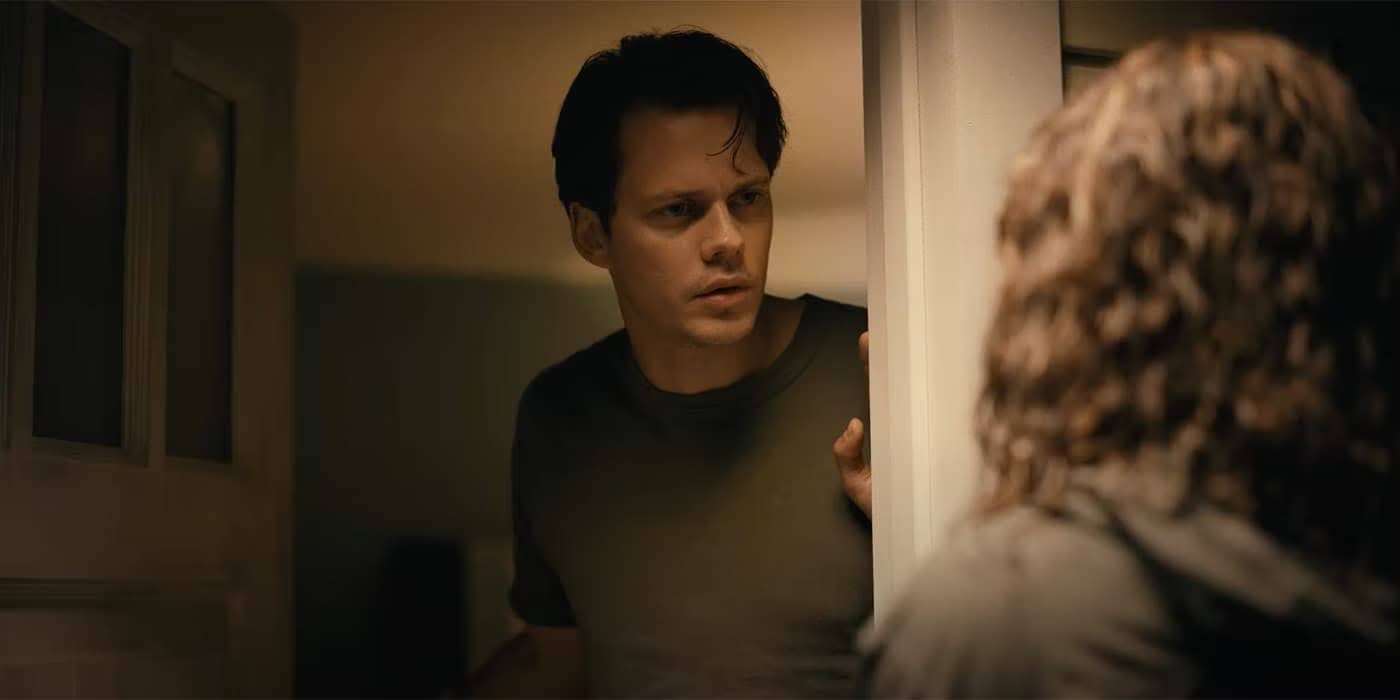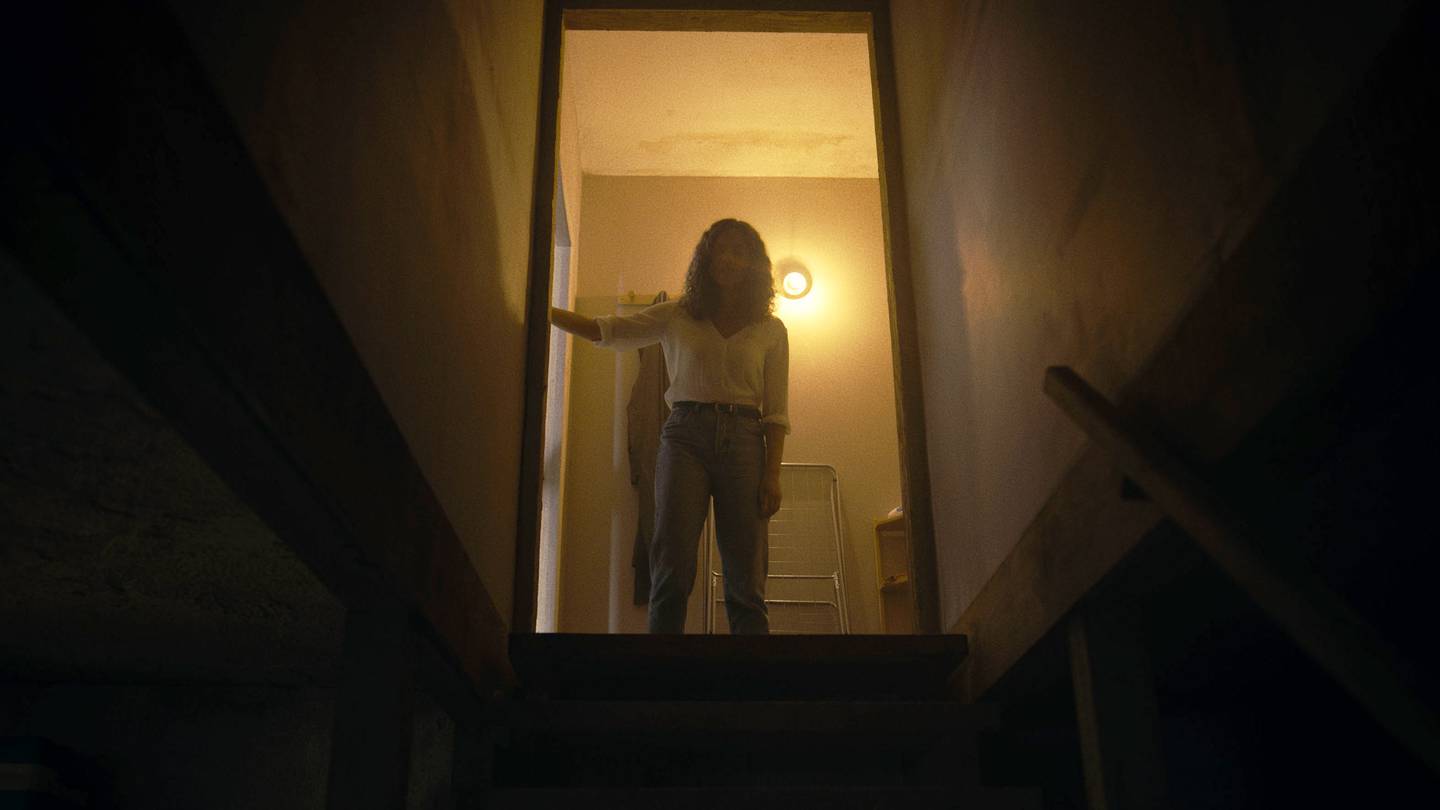KV: I sometimes feel like horror movies that attempt to explore complex social issues fall a bit flat on both the horror and underlying message, using horror tropes or monsters to clunkily represent (or misrepresent) nuanced and sensitive subjects. Films like Fresh (a disappointing horror comedy about the terrors of modern dating) and Men (which I haven’t actually seen yet but am reliably informed is a 4/10 horror about a bunch of men) are some recent examples that spring to mind. For this reason, I was hopeful but apprehensive about Barbarian. To say that I was pleasantly surprised would be an understatement – or maybe a misstatement, because although it was incredible, it certainly didn’t make for pleasant watching. The horror in Barbarian arises not just from jump scares and dank spooky tunnels (although there are plenty of both) but from its incisive portrayal of power and the brutalities visited on those who are subject to it. Zoe, could you give us a brief summary of the plot?
ZA: This is going to be tricky as it feels almost criminal to discuss anything beyond what the trailer goes over, which is only the surface of scope of this labyrinthine film. We open on a shot of a spooky house at night in the rain (prime spooky-time/weather conditions). Tess (Georgina Campbell) is parked out front, screening calls from some dude named Marcus and reciting the check-in instructions for the Airbnb she has booked, 476 Barbary Street (the aforementioned spooky house). She braves the rain only to find an empty lock box, and to make matters worse, a sexy 6″4′ Swedish guy, a.k.a. Keith (Bill Skarsgård), in her Airbnb claiming he had booked the accommodation through another booking site and she’d just have to stay the night (I’ve definitely had this fantasy before).
In reality, and in Barbarian, the scenario that plays out is fraught with ambiguity, tension and justified mistrust on the part of Tess, who very reluctantly agrees to stay after exhausting all other options. Despite her reservations, they bond over the complimentary bottle of wine and their mutual involvement in the local jazz scene – Tess is in town interviewing for a research position on a documentary about the Detroit music scene, Keith apparently is a big deal in that scene and scouting for the “next nest” for the ‘”Lion Tamers” (no idea what this means, googled it and everything, but apparently some music thing).
The night passes with mild spooks – mild enough that Tess agrees to spend another night at the house with Keith, dismissing the documentarian’s warnings that she “shouldn’t be in Brightmore” (the outlying Detroit neighbourhood where this all takes place). That is, until she is chased into the house by a local man screaming at her. After this attack gets brushed off by the police, one thing leads to another and Tess gets locked in the basement in pursuit of bog roll. There she finds a hidden door, leading to a room with gruesome things that shall not be spoiled. Keith returns to the Airbnb, helping Tess escape the basement, and, understandably freaked out, Tess goes to leave the house. Keith insists she calm down and asks that before she leaves he go see this creepy room and assess it for himself (?). Having agreed to not leave before he returns, Tess goes to search for Keith after he hasn’t returned for a period of time.
The film then moves into its second quarter, cutting to an instantly iconic scene and performance from Justin Long, playing the quintessential LA dickhead, driving a vintage convertible, singing along to sleeper hit “Riki Tiki Tavi” by Donovan. He gets a call mid jam informing him that he has been accused of rape by an actress on the show he has been working on, the story is breaking tomorrow and his career is over. This leads his character, AJ Gilbride, to head to Michigan to liquidate his investment properties in the Detroit area, and straight to 476 Barbary street, where he finds Tess’s belongings left there, converging these two stories.
I simply refuse to say anything more plot-wise. Katie, hit me with what are you thinking.
KV: I am also very hesitant to say too much about the plot of this movie, so perhaps for the moment I’ll focus on the amazing performances. Georgina Campbell as Tess gives a wonderful and surprisingly touching performance as our protagonist, but as much as I hate to say it, I feel like we may both agree that the standout was the Mac guy himself, Justin Long. His chillingly accurate portrayal of an entitled, narcissistic and self-pitying man who has been accused of rape and fears being “cancelled” will strike a chord with anyone who has followed the #metoo movement (and the backlash against it), or who has experienced firsthand the ways in which men in such situations are only willing to atone in ways which will not inconvenience them.
To be honest, there is a lot going on in this movie. Apart from contending more explicitly with sexual violence in the age of #metoo, competing and intersecting storylines deal with themes of family violence, misogyny, incest, motherhood, white flight, racism, and Detroit’s housing crisis. On reflection, this all sounds like a lot, so I suppose if I had to critique this movie, it would be on the basis that it perhaps ended up a little busy. The reason I am so reluctant to cough up this measly reproach is that it honestly didn’t feel like it was trying to cram too much in – its interest at all times was in who holds power (usually white men), their reluctance to cede power, and the harm that they do to those who hold less power.
ZA: I couldn’t agree more. Barbarian is a “rich text” in all the right ways. Zach Cregger‘s film touches upon the above themes with nuance and humanity, without compromising on the relentless tension and horror of the narrative. There were just so many juicy scenes (both figuratively and in terms of goop) that were so satisfying without being exploitative. Films that deal with sexual violence and men existing both in and before the #metoo era can sometimes rely on gratuitous depictions or clunky platitudes. Barbarian not only avoids this, it explores these ideas (through the strength of Justin Long’s performance – a phrase I did not think I would ever be writing) of the insidious nature of sexually violent behaviours permeating and being reflected in day-to-day language, actions and world views of these kinds of men.
For such a thematically ambitious film, it cannot be overstated how artfully it was executed. The subterranean setting of the bulk of the horror, with its descending black tunnels, is reflected in the structure of the film. The use of dark space to intensify the suspense was almost unbearable, the soundtrack created both levity and poignancy throughout, and the conclusion of the film left us both nearly in tears. I am just so thoroughly impressed.
Barbarian is currently playing in cinemas.


